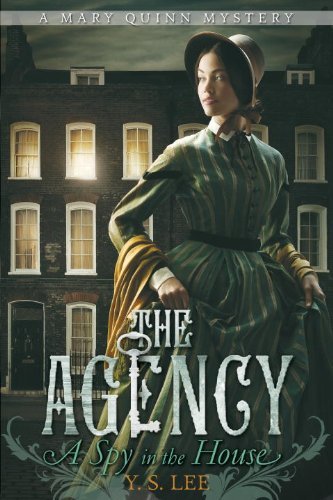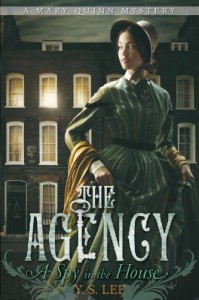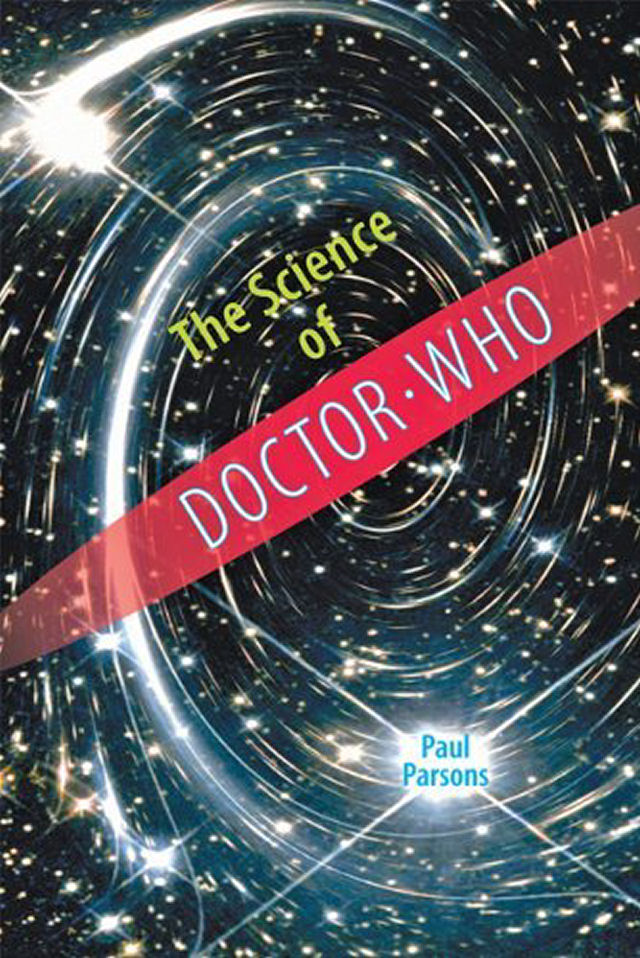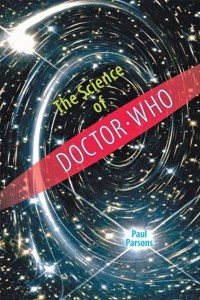What follows is a spoiler laden discussion of the book The Einstein Intersection. Beware if you’re worried about such things.
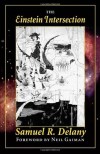 In the far distant future, Earth is no longer the domain of the human race. But a new people have arrived to live upon the surface of the planet, a people who adopt a humanoid form and human-like reproduction in order to take advantage of the environment. Lo Lobey is a member of this race, bereaved after the death of one he loves. He embarks on a journey which he hopes will end with her return from the dead.
In the far distant future, Earth is no longer the domain of the human race. But a new people have arrived to live upon the surface of the planet, a people who adopt a humanoid form and human-like reproduction in order to take advantage of the environment. Lo Lobey is a member of this race, bereaved after the death of one he loves. He embarks on a journey which he hopes will end with her return from the dead.
J: So. Um. I guess my first question is: What?
K: A great question. I have no answer. In fact, I have no idea. Experimental? Surreal? Just plain weird? None of those quite describe this book.
J: I just don’t know if I missed something or what. Well, no, I know I missed /something/.
K: Apparently, judging by Neil Gaiman’s introduction.
J: Oh, I didn’t read that. Since it wasn’t in my copy.
K: He wrote a lot of stuff about misconceptions — that science fiction always had to be about science, or outer space. And about what he felt this book brought to the table.
J: Uh.. confusion? :)
J: Can I say what I think it said and you can tell me if you think I’m right?
K: Shoot.
J: So it’s post-apocalyptic, yea? And radiation has caused these mutations. And that’s all well and good and understandable. And some of them are ‘different’, which you’d think means some of them have psi powers. And they’re the next stage in human evolution. Or whatever. And this one dude is killing other different people for, er, some reason. And then at the end, we learn it’s all just an illusion created by the computers. They’re all avatars? Or.. not. I don’t even know.
K: Mmm. That’s not how I read it. It’s post-human, though it’s not clear to me if the humans are all dead or if they simply left and didn’t come back. At some point some kind of alien creatures (and here’s where it gets really vague) settled on Earth and took humanoid form to adapt to the environment. But they kind of sucked at it, and as a result there’s tons of mutations and bad outcomes when they try to reproduce sexually. Meantime, on the other end of the outcome scale, there’s some people who are weird, but what that means and whether it’s good or bad we do not discover. It just is.
J: And did Neil Gaiman’s introduction lead you to that? I didn’t get that idea at all.
K: Hm. I can’t say if it did or not. I certainly did not get any of your ideas about an illusion created by computers. We’re explicitly told that the computer is creating illusions for the rejected beings in the kage at Branning, but I didn’t get the implication that we were supposed to think it was happening everywhere.
J: Okay. I just reread all the dialogue in the last two chapters or so and now I get that interpretation. Or explanation. They’re incorporeal aliens who’ve taken form on Earth.
J: I just took the ‘not human’ to mean not human any longer, not alien. So, I think it could’ve been clearer. Was it clearer to people reading it in the 60s? Was there some background or context I was lacking? But you got it..
K: Well, I was definitely thinking that they might be a new evolution on Earth, other creatures who had developed intelligence after humans. That was my first impression, especially when Lobey is describing himself, because he sounded very ape-like. But there were a lot of references to how they ‘came’ to the planet, so I had to give that up.
J: So is the title of the book “The Einstein Intersection”, apart from making a great Doctor Who episode title, supposed to be like.. energy and matter intersecting?
K: The introduction -did- explain that. Sort of. The publisher foisted that title on the book. So I suspect that it means absolutely nothing at all.
K: It was meant to be called “A Fabulous, Formless Darkness”
J: Ah, well, clearly /that/ is not a science fiction title. That doesn’t sell books!
K: Einstein is mentioned briefly at the end of the book, so that’s probably why they felt they could drag him into the title.
J: I guess “Ringo Starr vs Billy the Kid” would kind of be lacking something.
K: Hahahaha.
K: I guess since you bring them up, let’s talk about the random Beatles references. Seriously. What. The. Heck. Pop culture references in any work tends to date it (see: almost any bleeding edge teen chick lit from the past 10 years), but in here it was just -weird-.
J: I Googled the Beatles to get more exact dates in my head of when they were big. I mean.. isn’t it a little like throwing in a.. well, I’m bad at music.. what was big 5-10 years ago? Something from American Idol?
J: Like, all of civilization is /dead/, but at least the new alien inhabitants know who Lady Gaga was.
K: Exactly. That’s exactly what it’s like. I mean, yes, as it turns out, the Beatles are (probably) a bit more iconic than Lada Gaga will turn out to be, but back in the 80s looking at all the pop girl singers, would you have been able to pick out Madonna as the one with staying power? Doubtful.
K: It’s incredibly random. And even more random to focus in on Ringo. Because, of course, as someone born after the Beatles broke up, the main story I know about them is John and Yoko and that’s pretty much it.
J: Everything I know about the Beatles I learned from Quantum Leap.
J: There were some other references I didn’t get at all. Like, one guy who I guess is Billy the Kid’s nemesis or something. Orpheus I’m vaguely aware of. And then a couple other names..
K: The knowledge that lasted seemed incredibly random and also strangely specific. Like, Ringo. Elvis. 45s?! Seriously? Records and -something to play them on- will survive the fall of civilization.
K: They’ve barely even survived the rise of computers!
J: Iscariot. King Minos. If that former is Judas.. was Green Eye supposed to be Jesus? What the heck?
K: No, no. Spider was saying he was the traitor who betrayed Green-Eye. Comparing himself to Judas. I don’t think the metaphor was meant to go any further than that.
J: It is odd he knows what 45s are, but doesn’t know the word ‘town’.
J: I think the characterization of Lobey felt uneven. There were things he said in the narration that sounded to me like the author being clever, not the character being in character.
K: The whole civilization felt uneven to me. Were they primitive goat-herders or were they advanced beings who could randomly visit Saturn? Maybe it’s possible that they could be both, but I didn’t feel we had enough information for those two very opposite situations to make sense.
J: Well, I /think/, given the alien creatures thing, that they could just leave their body behind and zip off to another planet. Become some sort of creature there and hang out for awhile. Then come back if they wanted.
K: Maybe. But that doesn’t really explain the seeming complete lack of technology shown in the beginning juxtaposed with what we hear about later, aka these geneticists (doctors) coming to the villages to examine the genomes of the inhabitants. There was nothing to suggest any sort of real schooling or higher education among these people, so where did such people come from?
K: I felt like again, very similar to Babel-17, Delany had all sorts of grand ideas for this world, but he didn’t bother to explain or explore any of them. So they felt like dangling threads or random tacked on bits that made little sense.
J: Yea.
K: I felt the story was somewhat herky-jerky as well. We start off with a village scene, and we have barely enough time to get our bearings with the village and the monsters near the village when suddenly we plunge into a cattle drive and a western motif.
J: Yea. As I was about to say: My experience of reading it was very odd. Just as I thought I had a handle on who Lobey was, we meet Le Whatszirname, who is a responsible adult and the same age. And I started to see Lobey very differently. My mind kept trying to check out during that whole, long dragged-out bullfight scene. Then we go on a dragon drive for a long time. And then it just got weird and confusing for me when they hit the city.
K: It was very… yes, first of all, I didn’t know what to think about Lobey. As we experience things from his perspective, he did seem to legitimately come off as a young, unsettled, barely-adult young man. But as we learn more about his world and people it seems clear that at his age he’s already considered sexually mature for many years (and indeed we find he has at least one kid, possibly more) so theoretically is already an ‘adult’ in his village. So he’s incredibly -immature- compared to them, apparently.
J: Right. Although part of it was also that people around him know things and refuse to tell him!
K: Even when they do explain things to him, though, it doesn’t always improve our understanding.
K: At least not mine.
J: True.
J: But take the fact he thought.. wait, let me actually find the name. Le Dorik. He thought Le Dorik was a girl. Like.. nobody told him? And he didn’t figure it out? He seems to have a stubbornness in his ignorance. La la la, don’t tell me and I won’t think it and I’ll go be happy with my goats.
K: I was rather baffled by his confusion regarding Le Dorik. Shades of The Crying Game, I guess, but even worse — because he apparently had a kid with this herm, but was so disconnected he didn’t even notice Le Dorik was not just into guys. And also Friza, the love of his life, had a kid with someone not him. Even if that was part of their culture, you think he’d want to know who the dad was.
J: They said they did paternity tests! So why did he not know that other kid was his or not his? And they had orgies! Someone sexually inexperienced might miss the hermaprhodite bit, but someone participating in orgies regularly? Presumably /with/ hermaphrodites present. Like. Dude.
K: I was confused by the whole herm thing. Apparently they have their own honorific of ‘Le’, meaning they’re common enough to be considered a normal gender and not exactly an aberration. Except they do seem to be considered an aberration based on comments at the beginning and how Friza was offended by someone suggesting she be ‘Le’.
K: (May I also say, every time I read the name Friza, all I could think of was this: http://en.wikipedia.org/wiki/Frieza)
J: Heheh.
J: Well, the disconnect there is probably because the aliens that they are are normally ‘multisexed’ is I think the word the computer used. And humans are mostly two sexes. So to pretend to be human, they need to disavow that third sex as much as possible.
K: I didn’t quite get why they were pretending to be human. Sure, adopt a form that can exist on Earth. But if I buy a new house and move in I don’t take over the old owner’s -life-.
K: It’s really very odd. On the one hand, this novel is incredibly confusing, with lots of open-ended statements and symbolism and feeling very literary. On the other, it was a heavy-handed mishmash of mythology (minotaur, much?) which was mostly a retelling of Orpheus and Euridice, and the author was so worried the reader would miss it that he has numerous characters actually -tell- Lobey ‘You’re Orpheus, dude!’
J: *snerk*
J: And what’s with all the quotes? Is it supposed to be showing a cross-section of human history and literature that these aliens are drawing on? Or are they just there to pad the word count?
K: I have no idea. Let me quote what Gaiman said about them.
K: “The Einstein Intersection is a brilliant book, self-consciously suspicious of its own brilliance, framing its chapters with quotes from authors ranging from Sade to Yeats (are these the owners of the house into which the squatters have moved?) and with extracts from the author’s own notebooks kept while writing the book and wandering the Greek Islands.”
J: That was one of my questions. If those were real author notes or notes of a fictitious author.
K: If we assume Gaiman had correct information, they would seem to be Delany’s own notes. Which, frankly, are far more impressive than the text itself — a black American in his early 20s wandering around Europe and meeting people and speaking random languages.
J: Why’s that impressive? Isn’t bumming around Europe something you’re supposed to do at that age?
K: I guess, but it seemed impressive to me! To do it by yourself, and to apparently know enough of Greek and French to get by in both of them.
J: Well, I didn’t do it, so I guess I shouldn’t discount a certain bravery in it.
J: I take objection to Neil Gaiman calling this novel brilliant. I don’t believe it is. Taking random bits of this and that and slapping it into a novel is not brilliant. Like with Babel-17, only worse, I felt this novel had a lack of control and a lack of coherence.
J: Focus. That was the other word I was looking for. It needed more focus.
J: Then throwing in the author notes, also not brilliant. It may be an interesting study to literary critics, psychologists and other academics. It might even be interesting to readers, as witnessed by blogs that talk about the writing process. But I don’t think it helps the novel any to be in there. I think it hurts it.
J: You don’t want to see the man behind the curtain. You don’t want to see the wires. You don’t want to see all the chaos backstage while the actors are performing.
K: I certainly wouldn’t call the execution brilliant. Maybe the basic idea is brilliant and that’s what everyone’s reacting to. But for me, it wasn’t developed enough for me to judge the brilliance one way or another. It’s like a sketch. But a sketch of the Mona Lisa isn’t the Mona Lisa yet.
K: It’s just a potential.
K: I wouldn’t categorically say that including the author’s notes is a bad idea. I’m not sure much was added -here- with them, because their inclusion was too haphazard and not methodical.
J: I was going to look at the other nominated works and be all ‘Why did that other one not win?!’, but all of them are ones I haven’t even heard of, so I can’t say that. Although The Eskimo Invasion is an intriguing title.
K: Ha! I did the same thing.
J: Looks like Lord of Light won the Hugo. So I’m betting that one was more coherent.
K: There were a lot of very strong images in the book. I was especially caught by the description of the dragon captured by the carnivorous flowers. But they weren’t coherent enough as a whole.
J: I don’t even remember any dragon and carnivorous flowers, so. Not that strong of an image to me.
K: Heh.
J: I know we haven’t read many yet, but this book is the worst one so far.
K: It was very arty.
K: The sort of book that wins awards.
K: Which, frankly, is not a compliment.
K: I would definitely agree with it being worst so far. But even though it was not great as a story itself, do you think it had any influence on future books? I’m not actually really widely read in sci-fi, so nothing springs to my mind. I feel like Babel-17 may have influenced ideas more than this.
J: The only thing that springs to mind is Star Trek. TOS loved energy beings. But that’s contemporary with this novel, so it’d be tricky to say which came first, or if they were both drawing inspiration from the same source.
J: In general, no, I don’t see any lasting impact from this. Not like the previous winners.
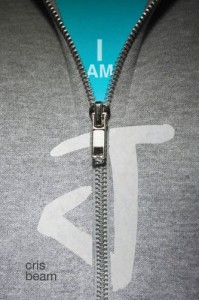 You might guess why I Am J by Cris Beam caught my eye. I am J! How much more awesome was it when I learned it was about a transgender teen? Though I have to tell him, J is not a good artist name. Bad Googlefu. I even wimped out on my name badge at work and wrote it Jae. People can handle two initials. AJ, PJ, etc. But one letter just doesn’t work so well.
You might guess why I Am J by Cris Beam caught my eye. I am J! How much more awesome was it when I learned it was about a transgender teen? Though I have to tell him, J is not a good artist name. Bad Googlefu. I even wimped out on my name badge at work and wrote it Jae. People can handle two initials. AJ, PJ, etc. But one letter just doesn’t work so well.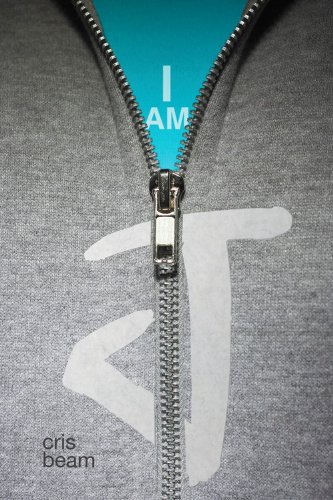

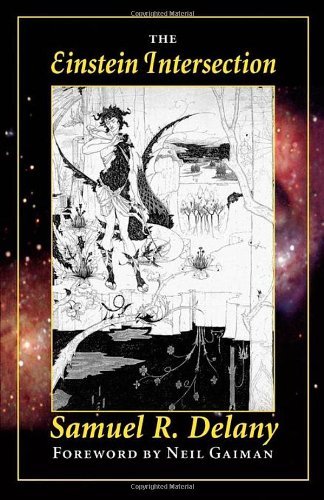
 In the far distant future, Earth is no longer the domain of the human race. But a new people have arrived to live upon the surface of the planet, a people who adopt a humanoid form and human-like reproduction in order to take advantage of the environment. Lo Lobey is a member of this race, bereaved after the death of one he loves. He embarks on a journey which he hopes will end with her return from the dead.
In the far distant future, Earth is no longer the domain of the human race. But a new people have arrived to live upon the surface of the planet, a people who adopt a humanoid form and human-like reproduction in order to take advantage of the environment. Lo Lobey is a member of this race, bereaved after the death of one he loves. He embarks on a journey which he hopes will end with her return from the dead.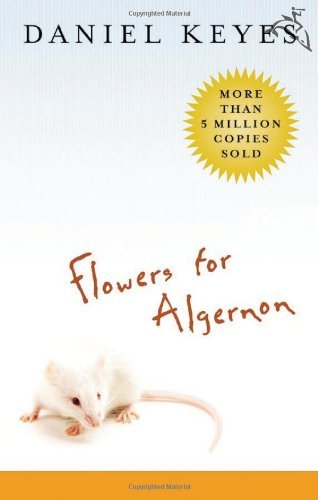
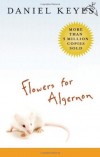 Tying with Babel-17 for the Nebula in 1966, Flowers for Algernon by Daniel Keyes tells the story of Charlie Gordon, a man with an IQ of 70 who works in a bakery, and how his life changes when he undergoes a procedure to increase his intelligence. He learns to look at his former life differently, even as he tries to fit in with the people around him as his intelligence catches up to theirs and even surpasses it.
Tying with Babel-17 for the Nebula in 1966, Flowers for Algernon by Daniel Keyes tells the story of Charlie Gordon, a man with an IQ of 70 who works in a bakery, and how his life changes when he undergoes a procedure to increase his intelligence. He learns to look at his former life differently, even as he tries to fit in with the people around him as his intelligence catches up to theirs and even surpasses it.
